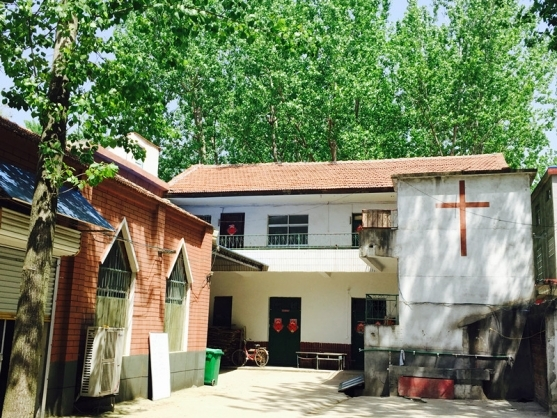Pastor Wang, a grassroots pastor from a third-generation Christian family in a city in Northwest China, co-manages a small church with his wife. Through years of ministry, he has come to recognize the critical importance of theological education.
Pastor Wang asserted, "Without theological education, one would encounter limitations in discipleship training and teaching. For instance, tackling issues that arise from cultural differences can become particularly difficult."
In China's exam-driven education system, many people excel at taking tests. But Pastor Wang emphasized that the true purpose of theological study is not about securing earthly advantages; it is about deepening one's understanding of God in order to serve Him better.
In the past, Pastor Wang envisioned seminaries as places that would attract the most gifted and capable individuals. After all, the Scriptures remind us that when the Israelites offered sacrifices, God desired the finest. However, he soon discovered a different reality. Many seminary students were "the ones left behind"—those who struggled academically, ethnic minority youth, and even troubled teens.
The Scriptures teach us, "When you give a feast, invite the poor, the crippled, the blind, and the lame." Pastor Wang reflected, "These are the individuals who often get overlooked, but they, too, deserve a chance. Jesus said, 'I have not come to call the righteous, but sinners.' And the Apostle Paul noted that few of those called by God are wise or powerful. If these 'left behind' individuals are not welcomed even by the Church, they risk remaining at the bottom of society. But if they can still find a place in the Church, there's hope for their lives."
Pastor Wang shared a story from a certain ethnic minority region in southwest China. In this area, many teenagers find themselves at a crossroads after completing their compulsory education. They do not have the chance to pursue further studies, and they also lack vocational skills, leaving them unsure about their future. Their parents often do not have a strong understanding of the importance of education either. As a result, these young people either drop out and stay at home or end up living on the fringes of society. Since they are still developing their character and often lack the necessary judgment, they encounter a lot of challenges when they enter society. In response to this issue, a fellow believer took action and established a seminary in the area specifically for these young individuals. After a few years, many graduates became key fellow workers in various churches.
Pastor Wang also recounted the story of a Christian father who, out of desperation, sent his "problem child" — a young man who struggled with studying and often caused trouble — to study theology. To the father's surprise, the experience at seminary completely transformed his son. Now a seminary graduate, this young man has returned to his hometown with a clear vision for his ministry and target audience. He has even launched his own music ministry and supports himself through a business selling musical instruments.
"The story of this brother had a profound impact on me," Pastor Wang reflected. "It is true that many of the most talented individuals have sought opportunities elsewhere, but if the Church does not step up to nurture those who are 'left behind,' what does their future hold?"
When it comes to the question of whether studying theology requires a full-time commitment, Pastor Wang adopts a flexible perspective. He believes it is entirely possible to study theology while being involved in ministry, especially with the increasing availability of online courses. These programs offer greater flexibility, making theological education more accessible.
Pastor Wang shared, "If there is indeed a time constraint, there are definitely ways to get involved in online theological training programs."
As for Pastor Wang himself, he is committed to lifelong learning and expressed, "If I get the chance, I'd love to pursue advanced training so I can eventually train disciples myself."
Every year, Pastor Wang travels to various regions to assess the needs of grassroots churches. He understands the unique challenges these churches in China encounter in nurturing talent, and this experience deepens his appreciation for the significance of theological education. "The churches in China really need to prioritize building their talent reserves," he stressed.
- Edited by Karen Luo, translated by Joyce Leung












